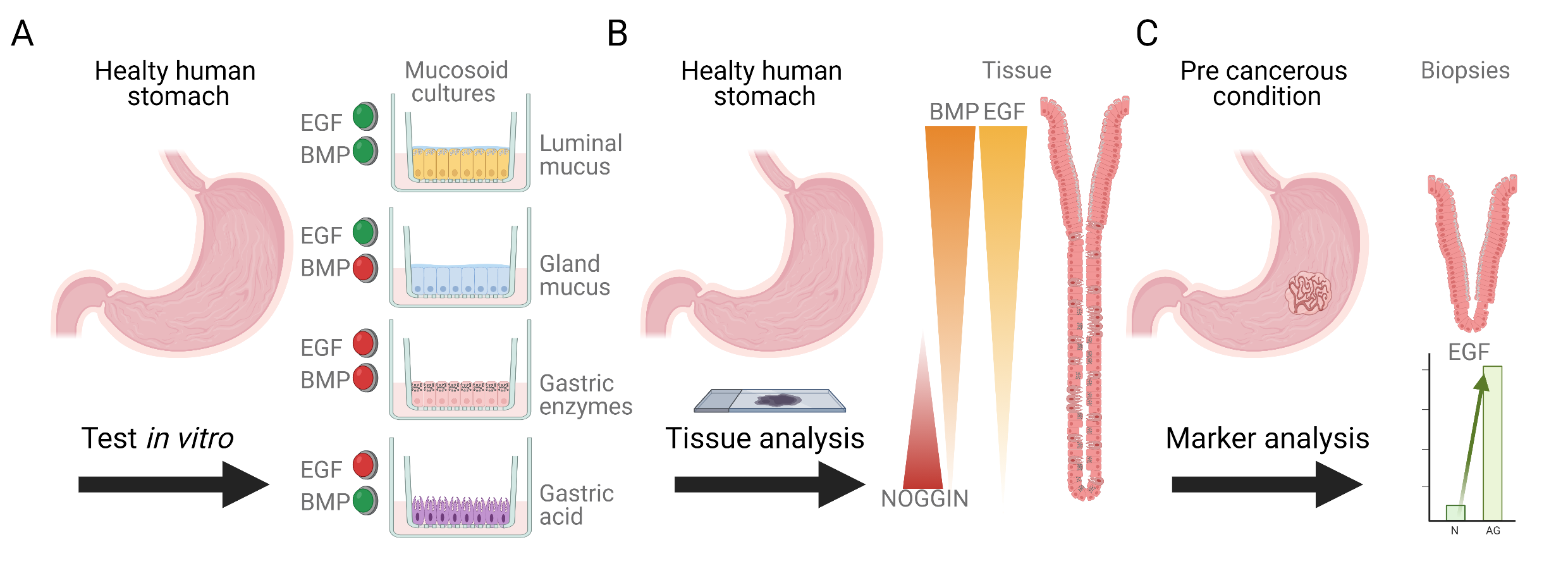The lining of the stomach is a key defence barrier against infection and needs to be constantly regenerated to maintain its integrity. New lining cells are produced from stem cells, which differentiate into specialised cells with distinct functions, such as acid-producing or digestive-enzyme producing cells. These specialised cells are precisely located in structures in the stomach (or gastric) lining called glands. In this paper published in the journal Gastroenterology, Ludwig Oxford’s Dr Francesco Boccellato and colleagues from Professor Thomas Meyer’s laboratory at the Max Planck Institute for Infection Biology, Berlin, investigated the factors that control the differentiation and patterning of these specialised stomach cells.
The researchers used an advanced tissue culture model developed by Francesco called ‘mucosoids’ and exposed these cultures to a range of different growth factors to obtain functional cells producing protective mucus, digestive enzymes or gastric acid (Figure panel A). They found that a factor called EGF, in combination with BMP and NOGGIN signalling, is important for the differentiation of each specialised cell type in the stomach glands and they have detected different levels of these molecules in human tissue samples taken from different regions of the stomach glands (Figure panel B).
Of relevance to human disease, EGF may also be responsible for stomach lining alterations in the pre-cancerous condition atrophic gastritis (Figure panel C). Understanding more about the role of EGF in gastric gland homeostasis may therefore shed light on the development of stomach cancer and will be investigated further in future work in the Boccellato lab.
 The three main outcomes from the recent paper in the Gastroenterology journal. See main text for details.
The three main outcomes from the recent paper in the Gastroenterology journal. See main text for details.
